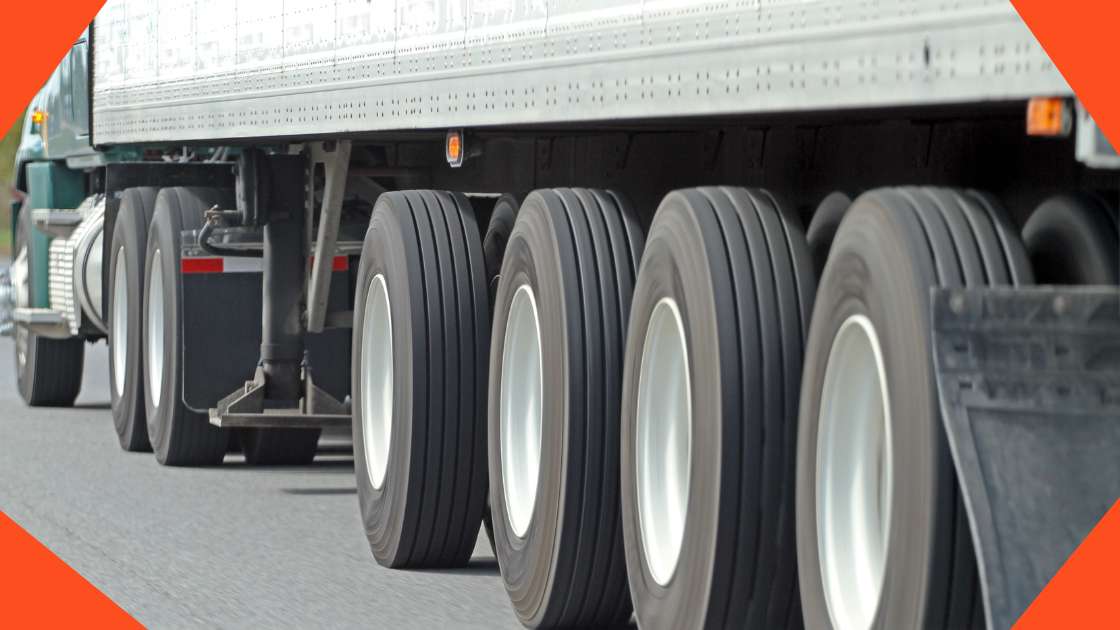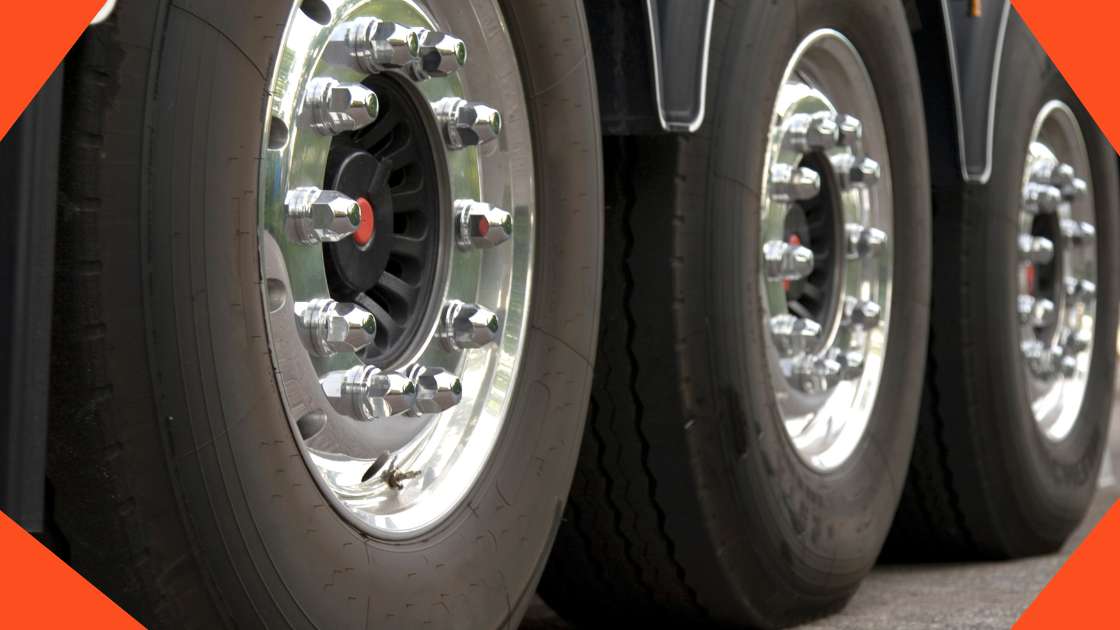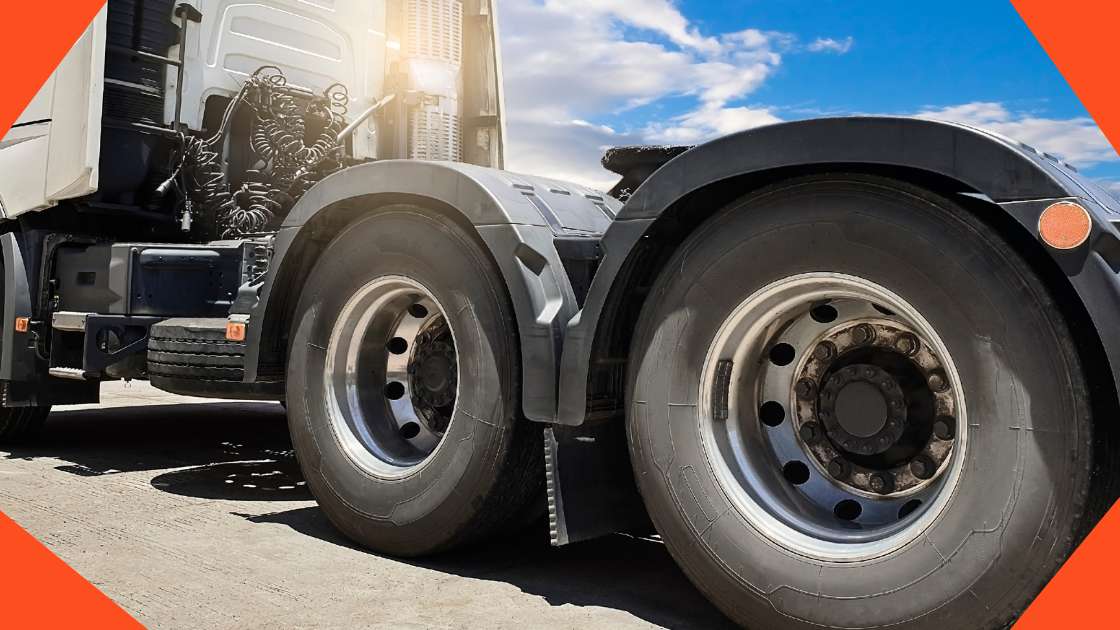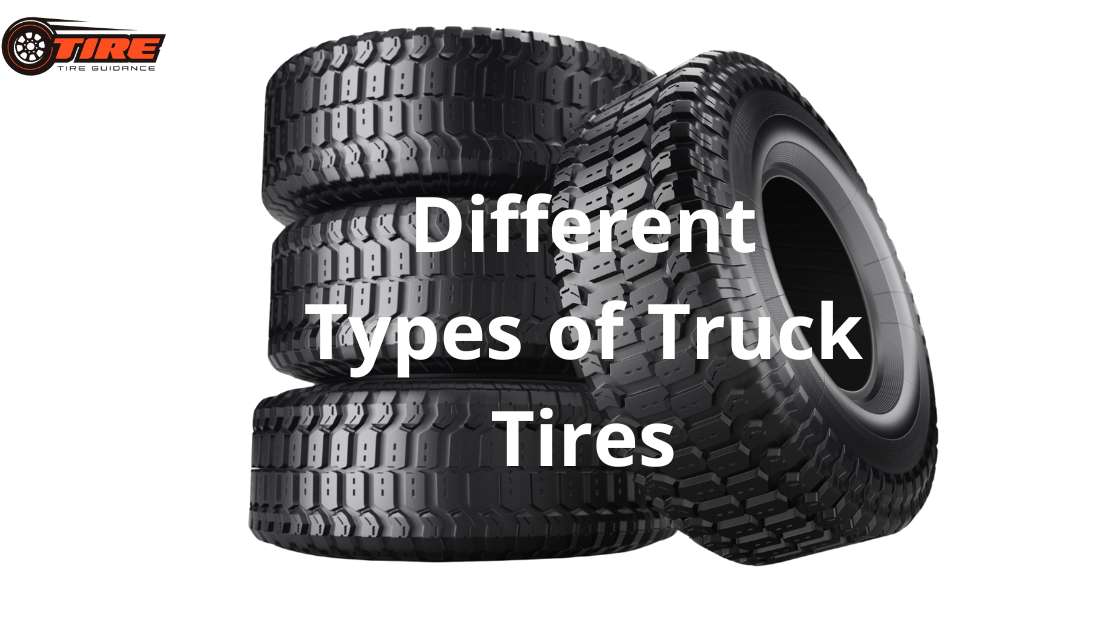Different types of truck tires include all-terrain, mud-terrain, highway, and winter tires, each designed for specific driving conditions and load requirements. Choosing the right tire depends on factors such as terrain, climate, and the truck’s intended use.
Table Of Contents
Introduction to Truck Tires

Truck tires are an essential component of any vehicle designed for heavy-duty tasks, be it transportation, construction, or off-roading adventures. Selecting the right tires can significantly influence safety, efficiency, and overall performance.
The right tires can not only enhance maneuverability but also provide better fuel efficiency—both crucial for business owners looking to maximize their profits.
Importance of Choosing the Right Truck Tires

Choosing the correct truck tires goes beyond just fitting a wheel. Tires can impact various aspects of truck performance. For instance, consider a friend of mine who owns a delivery business. He once opted for a cheaper tire option to cut costs.
Instead of saving money, he experienced frequent breakdowns and tire replacements, ultimately costing him more in repairs and lost business. Here are several important reasons why selecting the right truck tires is vital:
- Safety: The right tires provide better grip, which is especially important during adverse weather conditions. Tires designed for specific routes or environments will ensure that the vehicle stays stable and predictable.
- Performance: Different tires offer varying levels of performance based on their tread patterns and rubber composition. Tires optimized for specific functions can improve the overall driving experience.
- Cost-Effectiveness: While the upfront cost of high-quality tires may be higher, they often come with longer life spans, better fuel efficiency, and reduced maintenance costs, making them a more affordable long-term investment.
- Natural Environment Impact: Selecting eco-friendly tire options can also play a role in reducing the carbon footprint associated with transportation.
In summary, choosing the right truck tires is a decision that has far-reaching implications, from safety and performance to cost savings.
Factors to Consider When Selecting Truck Tires

When it comes to selecting truck tires, there are multiple factors to weigh. Each truck’s purpose and the environment in which it operates can drastically alter the best choices for tires. Here are key factors to consider:
- Tread Type: The tread pattern can define how well a tire grips the road surface. This is particularly vital for trucks frequently traversing rugged terrains. For instance:
- All-Terrain Tires: Designed for a mix of on-road and off-road conditions.
- Mud-Terrain Tires: Perfect for navigating through muddy and loose terrains.
- Load Rating: This rating indicates how much weight a tire can support safely. It’s imperative to assess your truck’s weight capacity and choose tires that can handle the load without compromising safety.
- Climate Conditions: If you live in an area with harsh winters, winter tires with deeper treads and unique rubber compounds may be necessary. Conversely, if you’re in a hotter climate, tires designed for heat resistance could be more suitable.
- Fuel Efficiency: Some tires are engineered to reduce rolling resistance, which can improve fuel economy. This is particularly useful for businesses where fuel costs make up a substantial part of operational expenses.
- Budget: Prices can vary widely among tire brands and types. It’s crucial to select a tire that meets performance standards without breaking the bank. Opting for brands with positive customer reviews or warranties can help in making a wise investment.
- Brand Reputation: Some tire brands are known for durability and performance. Researching and sticking to reputable brands can provide added confidence in your tire selection.
Ultimately, every truck owner must evaluate their specific needs and circumstances before making a decision. By considering factors such as tread type, load rating, and environmental conditions, you can ensure that your truck is equipped with the best tires to meet your unique requirements.
All-Terrain Truck Tires

Moving on from understanding the fundamental aspects of truck tires, let’s dive into a specific type that has gained immense popularity: all-terrain truck tires.
These versatile tires are designed to perform well on both paved roads and unpaved surfaces, making them a favorite among truck enthusiasts and commercial drivers alike.
Features and Benefits
All-terrain truck tires blend the capabilities of both on-road and off-road tires, making them an ideal choice for those who find themselves driving in varied conditions. Here are the standout features and benefits of all-terrain tires:
- Versatile Tread Patterns: The tread design of all-terrain tires usually consists of larger, more aggressive patterns, which contribute to superior traction on various surfaces, whether it be gravel, mud, or asphalt.
- Durability: These tires are constructed from robust materials, designed to withstand harsh conditions, including rocks and debris. My cousin, who often takes her truck off the beaten path, swears by her all-terrain tires. She shared that they survived multiple trips through rugged terrains without any punctures.
- Enhanced Handling: All-terrain tires typically offer better handling capabilities than standard tires. They provide more control and stability, making driving on uneven surfaces much safer.
- Noise Reduction: Surprisingly, many all-terrain tires are designed to minimize road noise when driven on highways, making them less intrusive during long drives. This feature can be a blessing for drivers who frequently switch between road types.
- Improved Traction: The deep tread allows these tires to grip onto different surfaces more effectively, giving drivers peace of mind in varying weather conditions.
To sum it up, all-terrain tires are an excellent option for those seeking versatility and performance across different driving conditions. They make for a solid investment, merging functionality with durability.
Best Applications for All-Terrain Tires
All-terrain tires excel in multiple driving scenarios, making them suitable for various applications. Here are some of the best applications for these robust tires:
- Outdoor Adventures: For individuals who love weekend camping trips or off-road excursions, all-terrain tires can handle everything from muddy trails to rocky paths, ensuring weekend warriors have a reliable ride.
- Light Off-Roading: If you own a truck that occasionally ventures off the paved roads, these tires will provide the traction and stability needed to navigate through moist earth, sandy beaches, or unexpected obstacles.
- Urban Driving: Residents of cities with heavy rainfall or mixed road surfaces will find that all-terrain tires offer greater reliability than regular tires. They’re built to perform equally well in both rugged and urban settings.
- Work Trucks: All-terrain tires are also popular among contractors and other professionals who often drive on job sites that may not have well-paved roads. Their construction helps prevent damage from sharp objects, while the versatile tread design ensures optimal performance across different work conditions.
- Transporting Goods: For delivery drivers dealing with varied routes, including construction sites and residential areas with rough roads, all-terrain tires provide excellent grip and durability, contributing to the safety and reliability of the transport.
In a nutshell, all-terrain truck tires serve as a multi-functional solution for a wide array of activities. Whether you’re an adventure seeker, a city driver, or someone who needs a reliable workhorse truck, investing in high-quality all-terrain tires can elevate both performance and safety.
With the right set of tires, you can confidently navigate mixed terrains and weather conditions, making every journey a more enjoyable experience.
Mud-Terrain Truck Tires

Having explored the versatility of all-terrain truck tires, it’s time to focus on a specialized type of tire designed for those who take on the harshest of terrains—mud-terrain truck tires. These tires are engineered to tackle extreme conditions and make off-road adventures far more thrilling.
Characteristics and Performance
Mud-terrain tires are renowned for their unique design and functionality, making them a must-have for off-road enthusiasts and adventurers who frequently face muddy and challenging landscapes. Here are some key characteristics and performance aspects of mud-terrain tires:
- Aggressive Tread Design: Mud-terrain tires boast deep, uneven tread patterns that are specifically engineered to dig into soft surfaces like mud and dirt. This unique design enables their users to maintain traction even in the most slippery conditions. My friend, an avid off-roader, shared that switching to mud-terrain tires transformed his experience on muddy trails, giving him the confidence to tackle previously avoided paths.
- Large Void Spaces: The spaces between the tread blocks are broader compared to all-terrain tires. This allows mud, sand, and debris to be expelled more effectively, preventing tire clogging and ensuring sustained traction.
- Reinforced Sidewalls: To resist cuts and punctures from sharp rocks and rugged terrains, mud-terrain tires typically come with reinforced sidewalls. This characteristic is invaluable for off-roaders who often traverse rough landscapes where tire damage is common.
- Enhanced Durability: Made from tough rubber compounds, mud-terrain tires can withstand harsh conditions, including extreme temperatures. Their durable construction minimizes wear and tear, making them a wise long-term investment.
- Noise Levels: One aspect to consider is that mud-terrain tires generally produce more road noise when driven on pavements. This could be a downside for those who frequently switch between on-road and off-road driving, but the performance benefits outweigh this for dedicated off-roaders.
In essence, mud-terrain tires are purpose-built for those who crave adventure in muddy or loose terrains. Their distinctive features set them apart from standard and even all-terrain tires, enabling drivers to tackle challenging conditions head-on.
Ideal Uses for Mud-Terrain Tires
If you thrive on off-roading adventures or require specialized tires for specific applications, mud-terrain tires should be on your radar. Here are some ideal uses for this type of tire:
- Off-Road Racing: Whether it’s competitive racing or just a weekend getaway in the woods, mud-terrain tires shine on racing tracks that include muddy water holes and steep hills.
- Trail Riding: For trucks navigating through wooded areas or exploration trails, these tires offer the grip and control that are essential for safe travel. An off-roading trip to a local trail last spring revealed how mud-terrain tires allowed my truck to handle the rigors of steep, slippery paths flawlessly.
- Farm and Agricultural Use: Farmers often use mud-terrain tires on their utility vehicles, as they can traverse fields, muddy farms, and uneven landscapes with ease, ensuring reliable transport of materials and equipment.
- Hunting Expeditions: Hunters venturing into wild terrains appreciate the traction that mud-terrain tires offer, especially during hunting seasons in soft-mud environments.
- Recreational Activities: ATV enthusiasts and recreational off-road drivers also greatly benefit from using mud-terrain tires, as they enhance the thrill of exploring rugged trails.
Mud-terrain truck tires are not just a stylistic choice; they are a necessity for anyone serious about navigating soft or muddy terrains. By adopting these specialized tires, drivers can approach their outdoor adventures with enhanced confidence and safety, knowing they are equipped to handle whatever the terrain throws their way.
Whether for recreational or agricultural use, investing in mud-terrain tires can lead to much more exhilarating experiences.
Highway Truck Tires

After looking at the distinct capabilities of all-terrain and mud-terrain tires, we now turn our attention to highway truck tires. When it comes to long-distance driving, the right tires can make a world of difference in performance, fuel efficiency, and overall safety. Highway truck tires are specifically engineered to meet the needs of long trips on well-paved roads.
Design and Efficiency
Highway truck tires are created with a focus on performance and durability, combining several features that cater to long-distance travel. Here’s what sets them apart:
- Optimized Tread Design: These tires feature a smoother tread pattern, often with fewer grooves. This design minimizes rolling resistance, which is crucial for maximizing fuel efficiency on highways.
- Reduced Noise Levels: Highway tires are designed to generate less road noise, offering a more comfortable driving experience for both the driver and passengers. A friend of mine who drives a long-haul truck says that smoother, quieter rides mean he arrives at his destinations less fatigued and more alert.
- Fuel Efficiency: With their design focused on lowering rolling resistance, highway truck tires can significantly enhance fuel economy. This is particularly advantageous for fleet operators, where every saved gallon counts towards operational costs.
- Heat Dissipation: Long-distance driving generates heat, and highway tires often incorporate features that help dissipate this heat to prevent overheating, which can lead to blowouts. My neighbor, a truck driver, shared a story where his choice of quality highway tires prevented potential disasters during a grueling summer journey.
- Durability and Longevity: Constructed from tougher rubber compounds, highway tires are designed to withstand prolonged use and carry higher weight loads, ensuring they last longer over vast distances.
These design features contribute not just to lower costs but also enhance the driving experience on long journeys. Well-designed highway tires can lead to significant savings over the lifespan of the tire, impacting overall business operations positively.
Recommended for Long-Distance Travel
Highway truck tires are undoubtedly the go-to choice for anyone embarking on long-distance journeys. Here are some specific scenarios and reasons why they are recommended:
- Long Hauls: For freight companies and truck drivers transporting goods across several states, highway tires provide the necessary reliability and endurance. Their efficiency ensures that deliveries are made on time while minimizing fuel costs.
- Road Trips: Individuals planning an extensive road trip will find that highway truck tires enhance the experience by providing safety and comfort. The reduced noise level and increased grip lead to a more enjoyable journey.
- Delivery Services: Businesses that operate delivery vans or vehicles that frequently travel extended distances can benefit from highway tires. Not only will they save on fuel, but they will also experience fewer tire-related issues.
- Fleet Management: Companies managing fleets can save significant costs by utilizing highway truck tires. With better fuel efficiency and reduced wear-and-tear, these tires contribute positively to overall operational expenses.
- Safety in All Conditions: While these tires are designed for highways, they can handle light rain and various road conditions, making them versatile. However, they are not recommended for heavy off-road conditions, where off-road tires would be more suitable.
In conclusion, highway truck tires represent a significant investment in terms of safety and efficiency for long-distance travel. Their thoughtful design features cater to various driving needs, ensuring reliability and comfort on the road.
For anyone who spends long hours behind the wheel, equipping your truck with quality highway tires can lead to a more enjoyable experience while maximizing fuel economy and minimizing downtime.
Whether for a personal road trip or as part of a business fleet, highway truck tires are essential for those ready to conquer the open road.
Winter Truck Tires

Transitioning from the versatile all-terrain, mud-terrain, and highway truck tires, it’s essential to discuss the specialized realm of winter truck tires. As winter approaches and temperatures drop, the need for tires designed to handle cold weather conditions becomes crucial.
Installing the right winter tires can make a significant difference in ensuring safety and performance during the frostiest months.
Cold Weather Performance
Winter truck tires are tailored specifically for cold weather conditions, and they bring several advantages that standard tires simply can’t match. Here’s a closer look at how they perform:
- Special Rubber Compounds: Unlike regular tires, winter tires are made from rubber formulations that remain pliable in freezing temperatures. This elasticity allows for a better grip on cold surfaces. I remember my uncle’s horror story about getting stuck during a winter storm because he hadn’t switched to winter tires on his truck. It was a lesson learned!
- Unique Tread Patterns: Winter tires feature deeper treads with specific designs optimized for snow and slush. The tread patterns include additional biting edges and grooves that enhance traction when navigating through icy conditions. This unique design helps channel snow and ice away from the tire.
- Enhanced Grip: The combination of a softer rubber compound and deeper treads gives winter tires a superior grip on cold, slick surfaces. For instance, when my neighbor decided to take his heavy-duty pickup up to the mountains during the snow season, he felt secure knowing he had equipped it with winter tires that offered exceptional control on icy roads.
- Shorter Stopping Distances: Winter tires provide much shorter stopping distances on snow and ice compared to regular tires. This reduced stopping distance can be a lifesaver when faced with unexpected obstacles or sudden changes in traffic.
In summary, cold weather performance is significantly enhanced with winter truck tires. The combination of specially designed materials and tread patterns ensures safer driving through harsh winter conditions.
Safety Benefits of Snow and Ice
The safety benefits of winter truck tires cannot be overstated, especially for those who frequently drive in snowy regions. Here’s how winter tires contribute to overall safety:
- Increased Stability: With better traction, winter truck tires ensure greater stability while driving on slippery surfaces. This stability is crucial for truck drivers who have to navigate through densely populated areas or winding roads during snowy weather.
- Proactive Safety: By investing in winter tires, drivers can take a proactive approach to safety. This is especially important for fleet operators. A client of mine who runs a logistics business insists on winter tires for his delivery vehicles during the colder months; he understands that the investment pays off in reduced accident risks and enhanced driver safety.
- Peace of Mind: Knowing that you’re equipped with the best tires for the conditions brings peace of mind. Drivers can focus on the road rather than worrying about whether their vehicle can manage challenging terrains. This sense of security can improve driving performance and responsiveness.
- Legal Requirements: In some regions, regulations may require the use of winter tires during specific months. Being compliant not only ensures safety but can also help avoid legal issues.
- Avoiding Incidents: The implementation of winter tires can help reduce accidents caused by slipping or losing control in winter conditions. The investment in winter tires is often far less costly than dealing with the aftermath of accidents or vehicle damage.
Winter truck tires are essential for anyone who drives in cold weather conditions regularly. Their specialized design ensures superior performance on cold, icy, or snowy roads, enhancing overall safety.
Emphasizing the importance of cold weather performance and the multiple safety benefits these tires provide can significantly influence a driver’s winter experience.
As winter approaches, equipping your truck with quality winter tires is an investment that will yield safety, peace of mind, and confidence throughout the frost-covered months.
Conclusion
Choosing the right truck tires is essential for ensuring safety, performance, and cost-efficiency, whether you’re driving on highways, off-road terrains, or in extreme weather conditions.
Understanding the different types of truck tires and their specific uses helps match your vehicle to the ideal tire for your needs. Additionally, regular tire maintenance prolongs their lifespan and enhances driving safety.
By staying informed about your options and prioritizing tire upkeep, you can optimize your truck’s performance and make a positive impact on both your budget and the environment.
Frequently Asked Questions (FAQ)
1. What are the main types of truck tires?
The main types of truck tires include:
- Highway/All-Season Tires: Designed for long-distance, mixed-weather driving on paved roads.
- All-Terrain Tires: Suitable for both on-road and off-road use, offering a balance between comfort and rugged performance.
- Mud-Terrain Tires: Specifically built for off-road conditions like mud, gravel, and rocky terrain.
- Snow/Winter Tires: Engineered for icy, snowy conditions with better grip in cold weather.
- Performance Tires: Designed for trucks that prioritize handling and speed.
- Commercial Tires: Built for heavy loads and frequent use, especially in commercial applications like hauling.
2. How do I know which truck tires are best for my vehicle?
To select the best tires, consider:
- Your driving conditions (highway, off-road, mixed terrain)
- Load capacity and vehicle type
- Climate (hot, cold, wet, snowy)
- Performance needs (fuel efficiency, traction, comfort)
- Budget and long-term cost considerations
3. What do the numbers on a truck tire mean?
Tire size is often indicated in a format like “265/70R17.” This means:
- 265: Tire width in millimeters
- 70: Aspect ratio (sidewall height as a percentage of tire width)
- R: Radial construction
- 17: Wheel diameter in inches Additionally, other numbers and letters indicate load capacity, speed rating, and tread type.
4. What is the difference between radial and bias-ply tires?
- Radial Tires: Offer better handling, fuel efficiency, and a smoother ride. They are more commonly used for modern trucks.
- Bias-Ply Tires: Have a stiffer sidewall, making them more durable and better suited for off-road and heavy-duty applications.
5. How often should I rotate my truck tires?
Truck tires should generally be rotated every 5,000 to 7,000 miles (or as recommended by the manufacturer) to ensure even tread wear and extend their lifespan.
6. When should I replace my truck tires?
You should replace your tires when:
- The tread depth reaches 2/32 inches or less.
- You notice uneven tread wear, cracks, or damage to the tire sidewalls.
- Tires are over 6 years old, as rubber degrades over time even if not used frequently.
7. What is the impact of tire pressure on truck tire performance?
Proper tire pressure is crucial for optimal performance, fuel efficiency, and safety. Underinflated tires wear out faster, reduce fuel economy, and can cause blowouts, while overinflated tires lead to poor traction and uneven wear.
8. What are the best truck tires for towing?
For towing heavy loads, commercial truck tires or trailer-specific tires with strong sidewalls and high load ratings are recommended. These tires are built to handle increased weight and offer enhanced durability.
9. Can I use all-terrain tires for highway driving?
Yes, all-terrain tires are designed for both off-road and highway use. However, they may be noisier and less fuel-efficient than highway-specific tires. If your driving is primarily on paved roads, highway tires might be a better option.
10. How can I extend the lifespan of my truck tires?
Regular tire maintenance helps extend tire life, including:
- Rotating tires regularly
- Keeping tires properly inflated
- Checking tread depth and tire alignment
- Balancing the tires
- Inspecting for damage and wear





